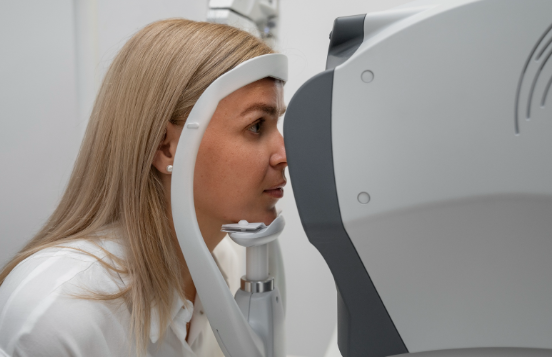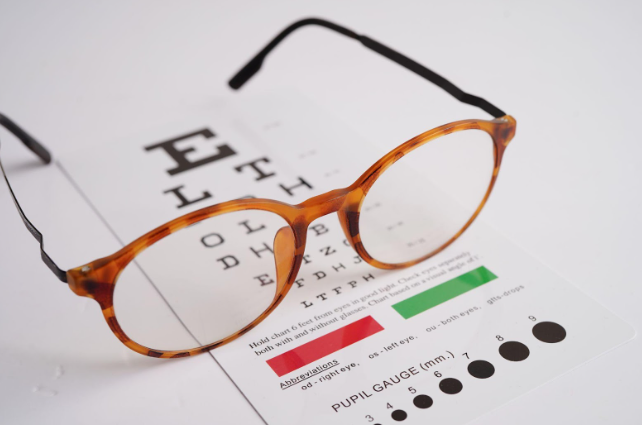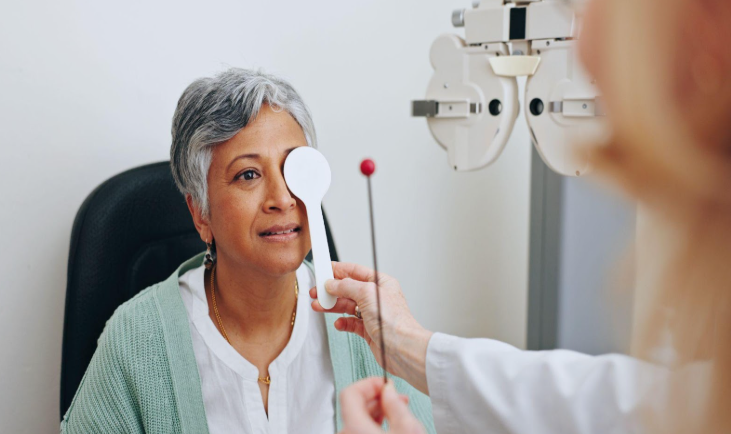Laser-Assisted Cataract Extraction & Lens Options: The Future of Clear Vision

If you’ve been told you have cataracts—or you’re beginning to notice cloudy, blurry, or dim vision—there’s good news. Cataract surgery has advanced tremendously in recent years, offering more precision, safety, and visual freedom than ever before.
At South Shore Eye Care, we’re proud to offer laser-assisted cataract surgery and the latest premium lens implants, including Light Adjustable Lenses and Extended Depth of Focus (EDOF) IOLs. These innovations can help you regain crisp, clear vision and reduce your dependence on glasses.
Here’s what you need to know about this modern approach to cataract surgery and the vision-enhancing options available to you.
What Is Laser-Assisted Cataract Surgery?
Cataracts form when the natural lens inside your eye becomes cloudy over time, leading to blurred or dim vision. During cataract surgery, this cloudy lens is removed and replaced with a clear artificial lens (called an intraocular lens, or IOL).
Traditional cataract surgery is performed manually, using handheld instruments. With laser-assisted cataract surgery, advanced laser technology is used to assist your surgeon in key steps of the procedure—making it more precise and customizable to your unique eye anatomy.
Benefits of laser-assisted cataract surgery include:
- Enhanced precision: The laser creates extremely accurate incisions and softens the cataract, allowing for gentler removal.
- Customization: Each laser treatment is tailored to the shape and size of your eye, which improves outcomes.
- Improved astigmatism correction: The laser can make tiny incisions to help correct astigmatism during the procedure.
- Faster recovery: Because less ultrasound energy is needed to break up the cataract, there’s less stress on the eye, often resulting in a smoother recovery.
While both traditional and laser-assisted cataract surgery are safe and effective, the laser-assisted option offers a higher level of accuracy and consistency—especially when paired with premium lenses.
Choosing the Right Lens Implant
After your cataract is removed, your surgeon replaces it with a clear artificial lens. This new lens restores your ability to focus light properly, giving you clearer vision.
There are several types of intraocular lenses (IOLs) available, depending on your visual needs and goals:
- Monofocal lenses: These lenses correct vision at one distance—usually for far vision—so you may still need glasses for reading or intermediate tasks.
- Toric lenses: Designed for patients with astigmatism, these lenses correct irregular corneal curvature for sharper vision.
- Premium lenses: These include advanced technologies that can reduce or eliminate the need for glasses for most activities.
Two of the most exciting advances in premium lens technology are the Light Adjustable Lens (LAL) and Extended Depth of Focus (EDOF) lenses.
The Light Adjustable Lens (LAL): Personalized Vision, Even After Surgery
One of the challenges of cataract surgery has always been predicting exactly how your eyes will heal and what prescription will give you the best vision. The Light Adjustable Lens (LAL) changes that completely.
This innovative lens allows your surgeon to fine-tune your vision after surgery—once your eyes have healed and you’ve experienced what your vision is like in real life.
How it works:
- During surgery, your cataract is removed, and the Light Adjustable Lens is implanted.
- After your eye has healed (usually a few weeks later), your doctor measures your vision and adjusts the lens power using a special, non-invasive light treatment.
- You can “test drive” your vision after each adjustment until you’re satisfied with the results.
- Once your ideal vision is achieved, the lens is “locked in” with a final light treatment, making the adjustment permanent.
Benefits of the Light Adjustable Lens:
- The world’s first and only lens that can be customized after surgery.
- Ability to adjust for distance, intermediate, or near vision—based on your lifestyle and preferences.
- Excellent visual outcomes, with many patients achieving freedom from glasses or contacts.
This is an ideal option for people who want a truly personalized vision experience and the flexibility to make post-surgical adjustments for optimal clarity.
Extended Depth of Focus (EDOF) Lenses: A Natural Range of Vision
Another popular premium lens option is the Extended Depth of Focus (EDOF) IOL. These lenses are designed to provide a seamless range of vision—from far to intermediate—while minimizing visual disturbances like glare and halos.
Unlike multifocal lenses, which have distinct “zones” for near and far vision, EDOF lenses use advanced optical technology to extend the eye’s natural depth of focus. This means you can enjoy clear vision at multiple distances without abrupt transitions.
Benefits of EDOF lenses include:
- Sharper vision for daily activities: See clearly while driving, working on a computer, or reading menus.
- Reduced dependence on glasses: Many patients no longer need glasses for most tasks, though they may still use reading glasses for very fine print.
- Fewer visual side effects: Compared to older multifocal lenses, EDOF lenses produce less glare, halos, or contrast loss, especially in low-light settings.
EDOF lenses are a great choice for people who want to maintain a natural range of focus and reduce their need for corrective eyewear.
Which Option Is Right for You?
Choosing the right surgical technique and lens implant depends on your lifestyle, vision goals, and eye health. During your consultation at South Shore Eye Care, our experienced surgeons will perform a thorough examination and discuss all available options with you.
Here are some questions to consider before your visit:
- Do you want to reduce or eliminate your dependence on glasses?
- Do you have astigmatism that needs correction?
- What activities are most important to you (driving, reading, computer work, sports)?
- Are you comfortable with a premium lens investment that offers more visual freedom?
Our team will help you make an informed decision based on your individual needs, ensuring the best possible vision outcome after surgery.
What to Expect After Surgery
Most cataract surgeries—including laser-assisted procedures—are performed on an outpatient basis, meaning you can go home the same day.
Recovery is typically quick and comfortable:
- You’ll notice clearer vision within a few days.
- Eye drops will be prescribed to help with healing and prevent infection.
- Avoid strenuous activity and heavy lifting for a short time.
- If you have a Light Adjustable Lens, you’ll return for your light adjustments in the weeks following surgery.
Your doctor will monitor your healing closely and make sure your new lens is performing exactly as expected.
Final Thoughts
Cataract surgery has become one of the safest and most successful procedures in medicine—and now, thanks to laser precision and advanced lenses like the Light Adjustable Lens and Extended Depth of Focus IOLs, it’s also more customizable than ever.
At South Shore Eye Care, our goal is not only to restore your sight but to give you the best possible vision for your lifestyle. Whether you want to reduce your reliance on glasses or achieve crisp vision at every distance, our experienced team will guide you through every step of your cataract journey.
If you’re ready to see the world clearly again,
contact South Shore Eye Care today to schedule your cataract consultation. Together, we’ll explore your options and help you find the perfect solution for your unique eyes.











